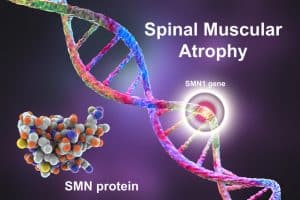
Spark gains approval for gene therapy, paving way for first $1m treatment
pharmafile | December 20, 2017 | News story | Research and Development, Sales and Marketing | Spark Therapeutics, biotech, drugs, gene therapy, pharma, pharmaceutical
The FDA handed approval to Spark Therapeutics’ gene therapy for an inherited eye disorder, making it the first treatment of its kind to be given the nod for a congenital condition.
The approval is historic and the FDA has said that it will draft up guidance that will see other players in the field be provided with a streamlined, regulatory process to navigate.
FDA Commissioner, Scott Gottlieb, said. “We’re at a turning point when it comes to this novel form of therapy and at the FDA, we’re focused on establishing the right policy framework to capitalise on this scientific opening. Next year, we’ll begin issuing a suite of disease-specific guidance documents on the development of specific gene therapy products to lay out modern and more efficient parameters — including new clinical measures — for the evaluation and review of gene therapy for different high-priority diseases where the platform is being targeted.”
Luxturna, as Spark’s treatment will be known, is designed to treat patients with confirmed biallelic RPE65 mutation-associated retinal dystrophy – a genetic condition that leads to deteriorating vision and can result in complete blindness in some patients.
The treatment works by using a common cold virus to deliver normal copies of the RPE65 gene directly to the patients’ retinal cells. It is delivered by an injection directly into the eye, with each treated after a six day interval.
In Phase 3 trials, it was shown that 93% of patients who had received the therapy displayed improvement to their vision – after being tasked with navigating obstacles in low light, a year following treatment.
Jeffrey D. Marrazzo, CEO of Spark Therapeutic, said: “This one-time gene therapy for an inherited disease represents a first-of-its-kind breakthrough that may lay the groundwork for the development of gene therapies for other conditions that are not adequately addressed today. We offer our sincere gratitude to the patients and their families as well as the expert investigators who continue to participate in Luxturna clinical development program.”
The significance of the approval, however, could extend beyond it being a new kind of gene therapy being approved for the market – there is the major question mark over where the price tag of the product will fall.
Spark has not revealed yet what it will charge for the therapy, but it is widely expected to be around $1 million per patient. This would make the treatment the most expensive in history and, no matter what the level of innovation, this will almost certainly begin major discussions over pricing and the value of treatments.
For instance, the long-term results of Luxturna are not yet known, though it has shown short-term benefits over the course of a year; however, if the treatment is being sold on the proviso that it will allow patients treated to cope better with everyday life, lessening the financial impact of aiding them, but subsequent studies found that the treatment’s efficacy tapered with time then there would be controversy over the serious cost incurred.
This is hypothetical but these will be questions that Spark is likely to face in earnest once patients begin to be lined up for treatment.
Ben Hargreaves
Related Content

Rare diseases – spinal muscular atrophy
Spinal muscular atrophy (SMA) is a rare disease characterised by voluntary muscle weakness that can …

Five Facts about spinal muscular atrophy
1 Spinal muscular atrophy (SMA) is a genetic disease involving the loss of motor neurons …

Arkin Capital closes $100m fund for pre-clinical and early clinical-stage biotech
Arkin Capital has announced the closing of Arkin Bio Ventures III, a $100m fund designed …





